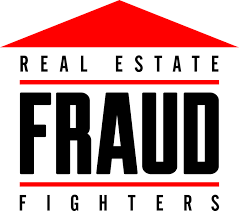With the “hot market” back in many cities throughout the country, fraud is also up substantially. It is not your typical fraud like we saw in the last recession but a new breed that is extremely sophisticated and can impact buyers and sellers of both commercial and residential properties. Fortunately, with Four easy steps you can protect yourself and your clients.
The newest fraud in town is “title fraud” where a sham title company takes and escrow deposit or closes a loan and the buyers and sellers are left holding the bag. It is a very sophisticated fraud that we are seeing that has taken millions of dollars from unsuspecting clients. For example, we recently saw and incidence where an attorney successfully lost over 400k for their client.
This is how the fraud played out: Lender attorney contacted a title company in Florida, sent them loan documents, received signed documents back and then wired to a CA bank account the lenders funds. The borrowers never made a payment. The lender goes to foreclose only to find out that they had no title insurance and their attorneys violated four golden rules that would have taken 5 minutes to verify. Their attorney never confirmed that the title company was legitimate, never confirmed that the title commitment was legitimate, wired to a CA bank account, communicated with a title company with a Gmail account, and didn’t realize that the address for the title company was a mail boxes etc… In essence, the attorney’s didn’t do their job and as a result lost allot of money.
As a consumer or real estate pro it is very simple to prevent real estate fraud and your attorney should follow the steps below (or if you don’t have an attorney on your transaction then you or your representative should take the appropriate steps).
- Verify the title company is legit: google the name and call the main number to ensure the title company is who they say they are (see below for the national title company contacts you can also verify. Also, once you reach the title company ask who their title underwriter is (Chicago, old national, Stewart, etc..). Call the underwriter directly to verify they are a licensed agent of the title company. Furthermore, google the address of the title company, look on google street view to see what the business looks like.
- Verify your title commitment with the issuing title insurer. Call the national issuing title company (Chicago title, old national, etc…, see below) and ask to confirm a title commitment (Do not call the title agent to verify since they could be part of the fraud, you are calling a third party… the actual title underwriter) You should be able to provide them with the commitment number (at the bottom of every legitimate title commitment) and they should verify the address, the title agent, and the insured amount. If the title company cannot verify this information based on the title commitment then your title commitment is worthless
- Before you wire, call the main number of the title company to confirm the wire instructions. The wire instructions should be for a local bank account in the area where the transaction is taking place. For example, you should never wire to a California bank account for a Florida loan closing. Wire fraud is becoming more sophisticated as hackers “take over” the title company e-mail to make it appear like it is legitimate. A simple phone call can typically stop this fraud in its tracks.
- A legitimate title company will never use G-mail accounts for business purposes and they will always have a website that looks professional. The e-mail addresses should be xxx@titlecompany.com and if you cannot google a title company and find their website then that is a sure sign of fraud. Make sure you also look on the underwriters website to ensure the agent is legitimate.
Numbers for the top 5 largest title companies so you can call to confirm valid policies and valid escrow agents
- First American: 1.800.854.3643
- Fidelity: (888) 866-3684
- Chicago : (888) 866-3684
- Old Republic: (612) 371-1111
- Stewart Title: (800) 729-1900
- Land Title: 303-321-1880 (large Colorado title company)
Here is an article from a title company on fraud:
http://vgtitle.com/red-alert-cyber-fraud-rise/
Written by Glen Weinberg, COO/ VP Fairview Commercial Lending. Glen has been published as an expert in hard money lending, real estate valuation, financing, and various other real estate topics in the Colorado Real Estate Journal, the CO Biz Magazine, The Denver Post, The Scotsman mortgage broker guide, Mortgage Professional America and various other national publications.
Fairview is a hard money lender specializing in private money loans / non-bank real estate loans in Georgia, Colorado, Illinois, and Florida. They are recognized in the industry as the leader in hard money lending with no upfront fees or any other games. Learn more about Hard Money Lending through our free Hard Money Guide. To get started on a loan all they need is their simple one page application (no upfront fees or other games).

